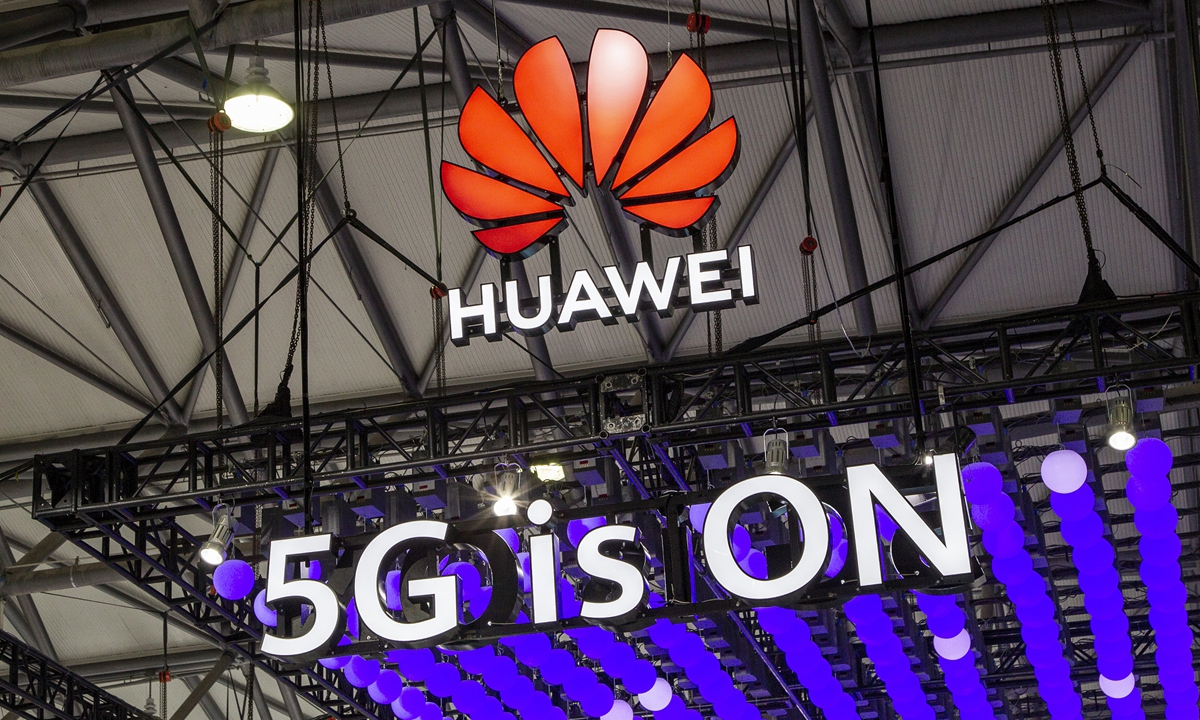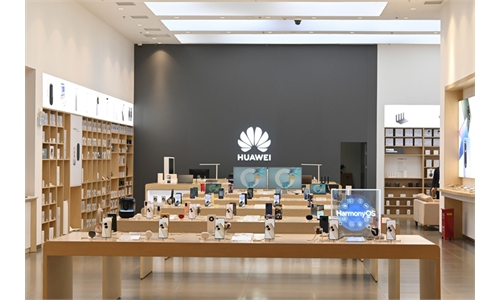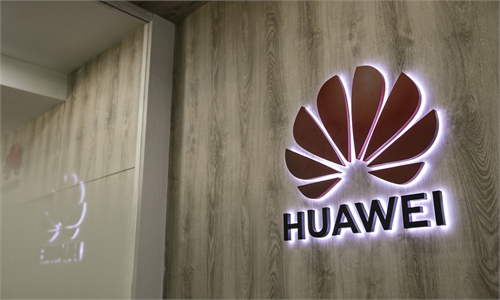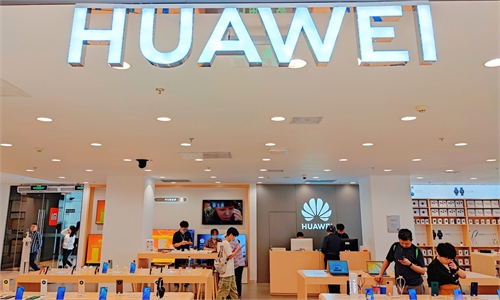
Photo: VCG
Some EU politicians are trying to derail China-EU cooperation by creating points of friction, but they are not convincing enough for most Europeans, which could be a warning against hijacking the China-EU relationship using so-called security risks.The EU is considering a mandatory ban on member states using companies deemed to pose a security risk to their 5G networks, including Chinese telecom giant Huawei, the Financial Times reported on Wednesday, citing officials familiar with the matter.
According to the report, officials believed if the EU failed to ban Huawei, the bloc would risk the "costs of long-term dependencies" on China, just as the bloc had relied on Russian energy supplies.
If anything, the potential ban is a dangerous sign in that if introduced, it would mean that the EU will end up seeing China as an enemy rather than just a competitor.
While it may be common for some politicians in the EU to claim China as an unreliable partner or even a hostile adversary, arbitrarily linking competition with China with groundless claims about security risks, it is still comforting to see this may not necessarily represent the opinion of most Europeans.
According to new findings published by the European Council on Foreign Relations (ECFR) on Wednesday, a majority of Europeans see China as a "necessary partner" rather than as a rival or adversary, and they would prefer to stay out of a potential conflict between China and the US over the Taiwan question, which is purely an internal affair of China at the core of its core interests.
The findings suggest that the majority of Europeans are sensible and pragmatic when it comes to China, in sharp contrast to hostility some politicians in the EU and some member states now show toward China. This is something for EU politicians to reflect on. Without any evidence that China could pose a security threat to the EU, some politicians insist on derailing the China-EU relationship from friendly posture to a hostile one, which is unconvincing and not in the overall interests of the EU.
China is just one of many countries that do not take sides in the Russia-Ukraine conflict, and it is unjustified and illogic to only see China as a rival of the EU. If some politicians in the EU insist that China is a security risk, they are actually creating problems for their own economies and businesses that are keen on China-EU economic and trade cooperation. At a time when the EU economy itself is already facing many challenges, increasing chances of confrontation with China based on groundless suspicion will only increase the difficulties of its own economic recovery.
Several international institutions such as the World Bank and the Organisation for Economic Cooperation and Development (OECD) recently raised China's growth forecast for 2023. The certainty of China's economic recovery has also led many European companies to actively seek cooperation with China. For instance, STMicroelectronics, Europe's second-largest chipmaker by revenue and Chinese firm Sanan Optoelectronics announced on Wednesday that they have agreed to form a $3.2 billion semiconductor joint venture in Southwest China's Chongqing.
Similar developments are sufficient enough to indicate how far-fetched and unpopular the idea of antagonizing China is in Europe. It would be laughable for some stubborn politicians to seek political interests while ignoring tangible economic benefits on grounds of ideological biases against China. And without a clear and correct approach toward China and overlooking the objective need for pragmatic cooperation, it is also worrying whether the EU will be able to play a key role in global affairs in the future.
Of course, there is no denying that with the continuous improvement in China's manufacturing, there could be more market competition between the EU and China. In addition to Huawei's 5G, China-made electric vehicles have also shown strong momentum in Europe. Technological advances, large-scale production and cost advantages will further strengthen the competitiveness of China's manufacturing sector.
We are not asking the EU to view China only as a partner. This is not realistic. China does compete with the EU in many areas. But whether the EU sees China as a competitor or a partner, it must strike a balance between the two. In fact, it is precisely because of the mixing of both competition and cooperation that China-EU relations have come to this point and both sides have benefited from it. That's also the way people in the EU also view China-EU relations.
If the EU wants to contain Chinese technology in ways that are not in line with international norms, imposing a ban on Chinese 5G technology, it could push their relations into hostility. It is time for the EU to put on the brakes.



